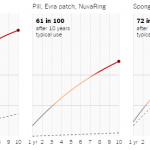Last week, an atheist friend of mine posted a link to Mark Oppenheimer’s feature article on misogyny in the atheist movement, sharing a quote and a comment:
“Jillette embodies that side of the freethought movement that prizes absolute free speech above feelings.”
In other words, the only side that enables free thought, period.
The Oppenheimer article had written up several instances of alleged sexual abuse or harassment, but Penn Jillette had wound up included in the piece because he “famously revels in using words like ‘cunt.'”
I think the steelmanned version of my friend’s comment is that, if your free thought movement doesn’t have some people around that it embarrasses you to be associated with, the odds are pretty good that you’re excluding some other currently-embarrassing ideas that will eventually turn out to be right. Employ as few filters as possible, and let the truth rise to the top.
I think that this is a consideration all movements should keep in mind, but that it isn’t a trump card — just another factor to weight in your decisions. Just like you’d weigh the dangers of losing correct ideas that come from the sort of people who don’t attend meetings where it’s common to use the word ‘cunt.’ Or for attendees to turn up naked. Or for some people to only respond to questions in Esperanto. All are generally frowned upon, and make it harder to have a conversation with your possibly-correct contrarian.
But there’s another part to this defense of Jillette and scolding of his detractors that isn’t just about offensive speech as a proxy variable for out-of-the-mainstream thinking. It’s in the dichotomization of free speech and feelings, which assumes that “that offends me” limits our ability to look at data, as surely as smashing a microscope does. Here, the instrument in danger of being crippled is the intellect, which isn’t allowed to use all of its settings once people like me come along and say, “Hey, could you watch the Nazi analogies? They’re distracting/upsetting me.”
My objection is that offense is also data about the world. And mighty interesting data, too, since it’s information about how humans think and feel, and what those facts imply about how we should treat them. That’s the sphere of inquiry that’s most urgently relevant to all of our lives. And, as we get better at investigating it, we should expect the set of actions we feel it’s appropriate to take to contract at times. That’s not a limitation placed on free inquiry — it’s the fruit of rational inquiry.
The point of considering ideas is to wind up believing the right ones. The point of analyzing behaviors is to wind up practicing the right ones. Feelings are as relevant to the latter category as solar eclipse astronomy is to ideas about relativity.
It might be that, after listening to the people who are upset, you think that they are upset in error — that, if they were in possession of all the facts, empirical and ethical, they wouldn’t find whatever you did repulsive. Or it might be that you’d wind up changing your own behavior, and taking an audit of your assumptions, to see where your model of the world went wrong–how you mistook your action or speech as morally neutral. Or you might both wind up agreeing that there’s nothing intrinsically wrong with the behavior or speech in question, but it tends to derail the conversation between the two of you, and it would be worth figuring out a workaround. (For an example in this category: I find it gross to talk to someone who is in the act of brushing their teeth, so I don’t).
But it’s only possible to come to any of these three conclusions if you’re willing to treat people’s discomfort with the same honest interest that you have for the subject you were originally talking about, prior to the interruption.













